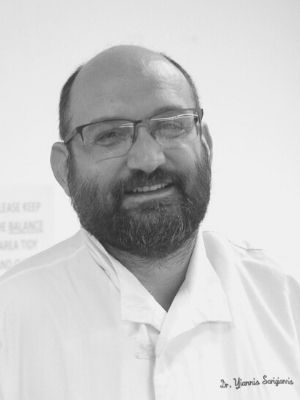Drug Regulatory Affairs
(MSc, 3 Semesters) - E-Learning/Distance Learning (Online)
Duration
1.5 Year (3 Semesters)
Qualification Awarded
Master of Science in Drug Regulatory Affairs
Level of Qualification
Master Degree (2nd Cycle)
Language of Instruction
English
Mode of Study
E-Learning/Distance Learning (Online)
Minimum ECTs Credits
90
Request Information
Drug Regulatory Affairs (MSc, 3 Semesters) – E-Learning/Distance Learning (Online)
| Duration | 1.5 Year (3 Semesters) |
| Qualification Awarded | Master of Science in Drug Regulatory Affairs |
| Level of Qualification | Master Degree (2nd Cycle) |
| Language of Instruction | English |
| Mode of Study | E-Learning/Distance Learning (Online) |
| Minimum ECTS Credits | 90 |
Request Information
Profile of the Programme
The MSc in Drug Regulatory Affairs is an international programme focusing on the regulation of medicinal, biological and biotechnological products, as well as on the regulation of medical devices and herbal medicinal products.
The programme targets individuals involved in the regulatory and legislative areas of the pharmaceutical industry, employees in healthcare and biotech companies, regulatory bodies, but also individuals who aspire for a career in the aforementioned industries. Candidates will gain comprehensive and detailed knowledge of the procedures related to the application, registration and approval of drugs , biological and biotechnological products. This will qualify them as specialists in the entire process of drug registration from the initial stages of discovery to the final approval and post marketing surveillance. Graduates of the programme will be qualified to advise and get involved in professional groups in the development process surrounding the regulatory and statutory requirements governing drug registration.
The programme also offers the opportunity for ongoing professional development of individuals already employed in the field at a junior level.
Programme Objectives
The objectives of the program are to get a thorough understanding of the many aspects of the regulatory structure and process, and be able to apply regulations correctly and effectively. In order to achieve these objectives, topics that will be taught include:
- The principles of drug discovery and drug development
- EU regulation and legislation
- EU regulatory procedures
- Marketing authorization applications
- Pharmaceutical regulatory affairs aspects of Pharmaceutical quality
- Pharmaceutical regulatory affairs aspects of Non-clinical development
- Pharmaceutical regulatory affairs aspects of Clinical development
- Pharmaceutical regulatory affairs aspects of Quality management
- The future directions in global pharmaceutical and health economics and their implications for product development and evaluation
- The documentation and data requirements for submission to regulatory authorities covering the diverse stages of the product development process.
- Implementation and evaluation of improvements in performance drawing on innovative or best practice
- Regulatory, project management and business planning strategies of relevance to the approval process of regulated products
- Drug Safety / Pharmacovigilance and Role of Pharmacoepidemiology
- Regulatory Affairs οf medical devices
- Market pricing and reimbursement
- The legal directives and ethical considerations for development, commercialization and marketing of products for clinical use.
Career Prospects
Regulatory professionals are employed in industry, government or independent regulatory bodies, consulting companies, or academia, and are involved in the regulation of a wide range of products, including:
- Human Medicinal Products
- Biopharmaceuticals
- Medical Devices
- Veterinary Products
- Herbal Medicinal Products
They ensure products adhere to all regulatory requirements throughout all phases of product
development and market life.
Our graduates can assume regulatory positions such as:
- Regulatory affairs associate/specialist
- Regulatory affairs consultant
- Regulatory affairs manager
- Compliance specialist/officer
- Clinical research associate
- Clinical trial manager
- Medical writer
Access to Further Studies
Graduates of the programme can be accepted into Third Cycle degrees (Doctoral Degree)
Note: The program offers a thesis and non thesis option. In the non thesis option, two elective courses must be completed instead of the thesis. In some countries and/or institutions, a master without a thesis may not be recognized. If you choose to pursue the non thesis option it is advised that you check with your country’s regulations for the acceptability/recognition of a master without a thesis. For further clarifications you can contact the program coordinator.
- A Bachelor’s degree related to Pharmacy, Chemistry, Medicine, Veterinary, Biology or related Fields (together with a transcript) from an accredited institution of higher education.
- Curriculum Vitae
- Short statement (approximately one page) of personal goals and professional interests.
- Knowledge of English language.
- Two recommendation letters (one preferably from University Professor).
- Other documents that might support the application (e.g. articles, books, awards).
- Documentation on previous working experience in the Pharmaceutical Industry (if applicable).
The admissions process also includes an interview with the candidate.
English Language Proficiency
Students satisfy the English requirements if their first degree was taught in English. Otherwise, they would need to present a minimum TOEFL score 550 and above, or Computer-based TOEFL score of 213 and above, or Internet-based TOEFL (iBT) score 79-80 and above, or GCSE (or GCE) English Language “O” Level of “C” or above or IELTS of 6.5 and above or Cambridge Exams (First Certificate with Grade B and above, as well as Proficiency with Grade C and above or a score placement at the ENGL-100 level of the University English Placement Test. The University offers English courses at various levels to help students reach the required standard for admission to a graduate program.
Course assessment usually comprises of a comprehensive final exam and continuous assessment. Continuous assessment can include amongst others, weekly interactive activities, projects, positive online forum participation etc.
Letter grades are calculated based on the weight of the final exam and the continuous assessment and the actual numerical marks obtained in these two assessment components. Based on the course grades the student’s semester grade point average (GPA) and cumulative point average (CPA) are calculated.
The student must complete 90 ECTS and all programme requirements.
A minimum cumulative grade point average (CPA) of 2.0 is required. Thus, although a ‘D-‘ is a PASS grade, in order to achieve a CPA of 2.0 an average grade of ‘C’ is required.
Upon successful completion of this program, the students should be able to:
- Independently initiate and carry out proper actions between regulatory authorities and the marketing application authorization applicant/holder.
- Critically examine and evaluate scientific data and conclusions intended for regulatory review
- Appraise and use of the regulatory documentation and systems.
- React and respond to changing guidelines and regulatory systems
- Interpret and critically analyze complex regulatory requirements, legal and ethical obligations and construct and communicate regulatory strategy to colleagues.
- Apply new methods, tools and strategies to aid successful drug development and regulatory review.
- Apply improvement of the regulatory environment by implementing and upholding good regulatory practices.
- Apply regulatory compliance in pharmacovigilance
- Interpret the legal and regulatory directives pertaining to pre-clinical and clinical product development.
- Operate as an effective team member or leader as part of interprofessional teams or multi-agency teams.
- Critically appraise of the research/evidence in the field of pre-clinical and clinical development planning and submission.
- Train leaders and employees in regulatory aspects of drug development
- Critically evaluate the requirements for obtaining Marketing Authorization for medicinal products and medical devices in the EU and Emerging Markets
- Appraise the process of evaluating risks and assess the risk to benefit ratio
- Analyze the concept of pharmacoepidemiology and how this affects drug approval and post marketing
- Summarize the basic drug design (development)
- Critically examine the concept of signaling in side effects
- Categorize the manufacturing risks in the case of low and high risk products (oral dosage forms Vs injectable ones
- Critically evaluate regulations from the cultural point of view in various countries
| Course ID | Course Title | ECTS Credits |
|---|---|---|
| PHAR-615 | Drug Development and Ethical Considerations in Pharma Industry | 10 |
| PHAR-616 | The EU Regulatory Affairs System | 10 |
| PHAR-617 | Regulatory Strategy and Marketing Applications for New Medicinal Products | 10 |
| PHAR-618 | Quality Assurance and Compliance | 10 |
| PHAR-619 | Clinical Trials, Preclinical and Clinical Development and Documentation | 10 |
| PHAR-620 | Pharmacovigilance and Pharmacoepidemiology | 10 |
| PHAR-621 | Research Methodology | 10 |
Semester 1
| Course ID | Course Title | ECTS Credits |
|---|---|---|
| PHAR-615 | Drug Development and Ethical Considerations in Pharma Industry | 10 |
| PHAR-616 | The EU Regulatory Affairs System | 10 |
| PHAR-617 | Regulatory Strategy and Marketing Applications for New Medicinal Products | 10 |
Semester 2
| Course ID | Course Title | ECTS Credits |
|---|---|---|
| PHAR-618 | Quality Assurance and Compliance | 10 |
| PHAR-619 | Clinical Trials, Preclinical and Clinical Development and Documentation | 10 |
| PHAR-620 | Pharmacovigilance and Pharmacoepidemiology | 10 |








